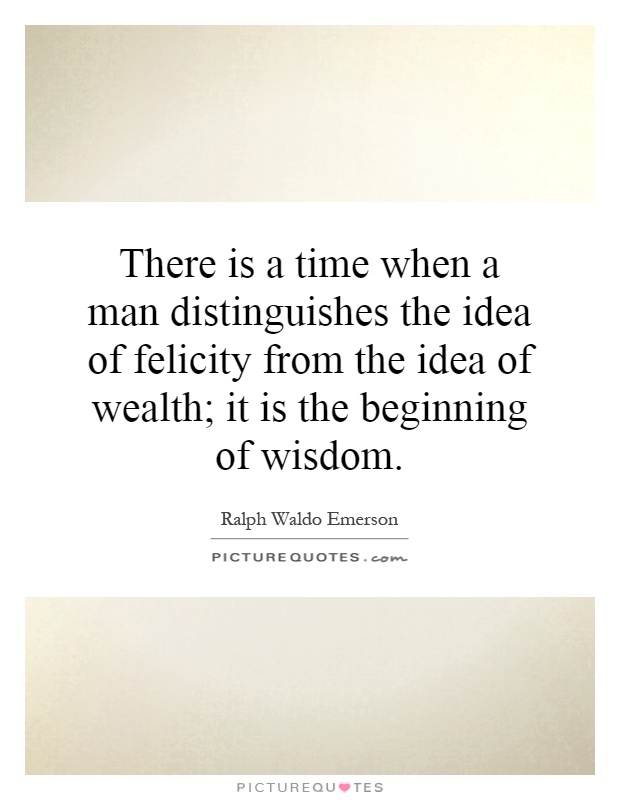There is a time when a man distinguishes the idea of felicity from the idea of wealth; it is the beginning of wisdom

There is a time when a man distinguishes the idea of felicity from the idea of wealth; it is the beginning of wisdom
Ralph Waldo Emerson, a renowned American essayist, lecturer, and poet, was a firm believer in the power of self-reliance and individualism. His works often explored the themes of nature, self-improvement, and the pursuit of happiness. One of his most famous quotes, "There is a time when a man distinguishes the idea of felicity from the idea of wealth; it is the beginning of wisdom," encapsulates his philosophy on the true nature of happiness and fulfillment.Emerson believed that true wisdom comes from understanding that happiness and wealth are not synonymous. While wealth may bring temporary pleasure and comfort, true felicity comes from within, from living a life of purpose, integrity, and self-awareness. This distinction marks the beginning of wisdom, as it signifies a shift in priorities and values towards a more meaningful and fulfilling existence.
In today's materialistic society, where success is often equated with financial wealth and possessions, Emerson's words serve as a powerful reminder of the importance of looking beyond material gain in the pursuit of happiness. He encourages individuals to seek fulfillment in personal growth, self-discovery, and the cultivation of inner virtues, rather than in the accumulation of wealth and status.
Emerson's emphasis on the distinction between felicity and wealth also speaks to the idea of living a life of authenticity and integrity. He believed that true wisdom lies in being true to oneself, in following one's own path and values, rather than conforming to societal expectations or chasing after external rewards. By recognizing the difference between true happiness and superficial wealth, one can cultivate a deeper sense of self-awareness and inner peace.












 Friendship Quotes
Friendship Quotes Love Quotes
Love Quotes Life Quotes
Life Quotes Funny Quotes
Funny Quotes Motivational Quotes
Motivational Quotes Inspirational Quotes
Inspirational Quotes